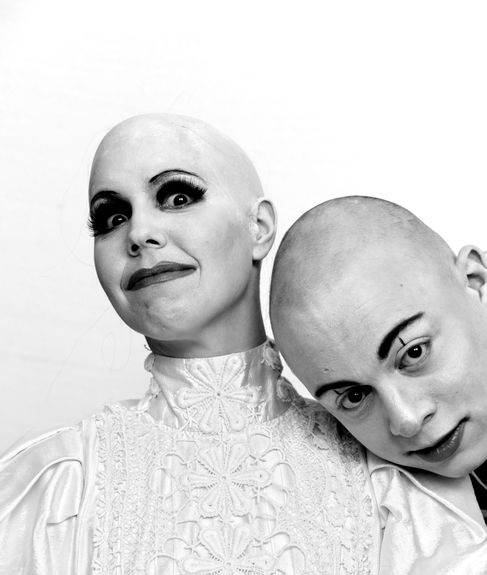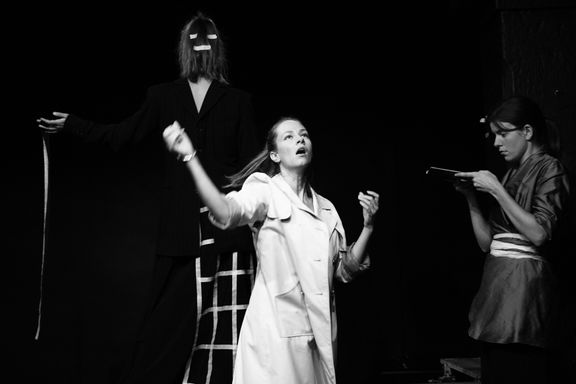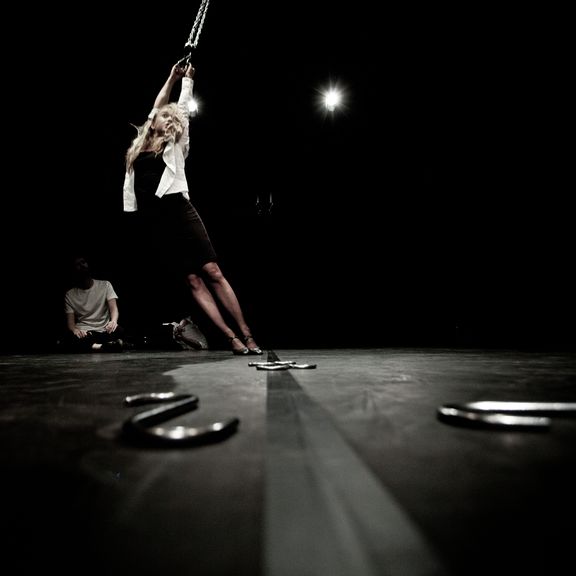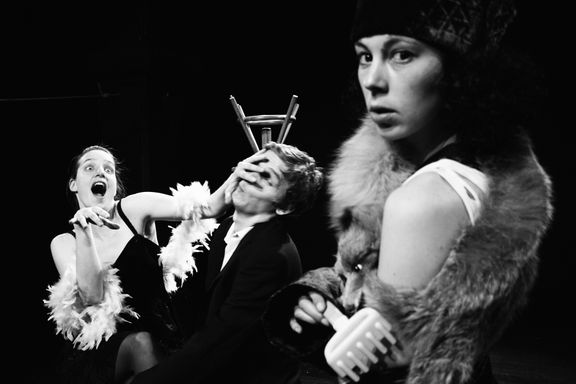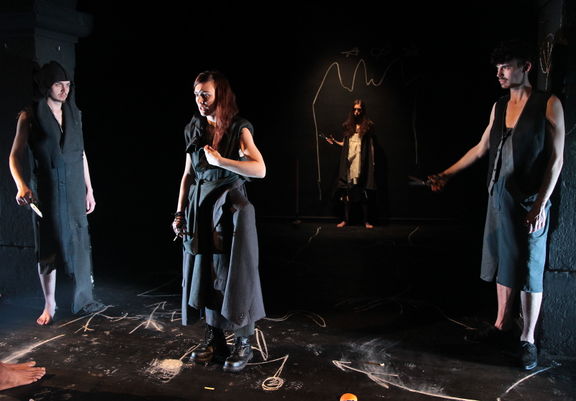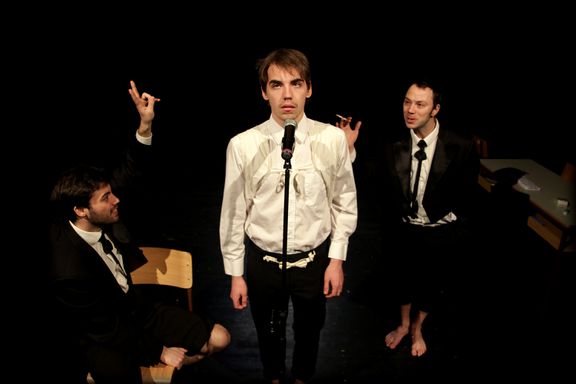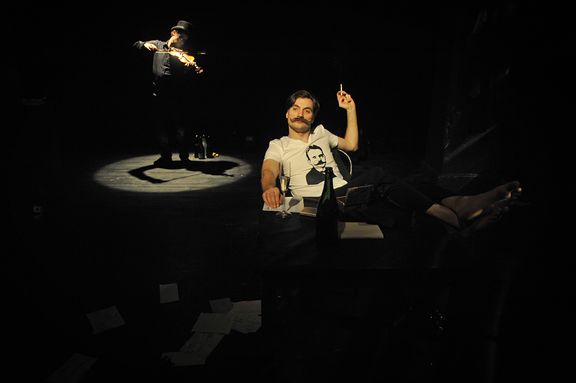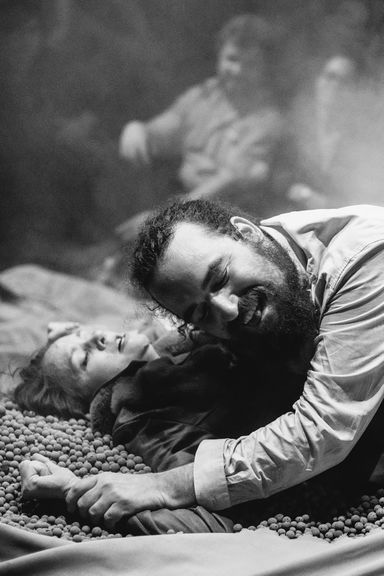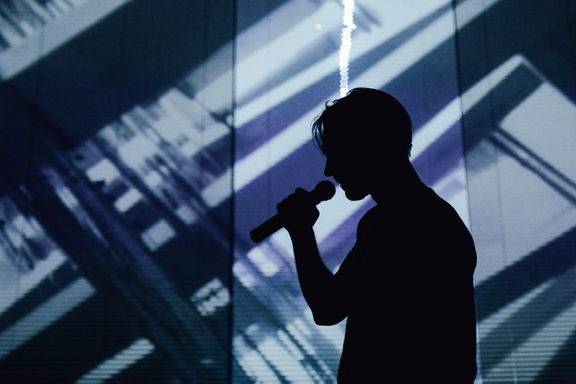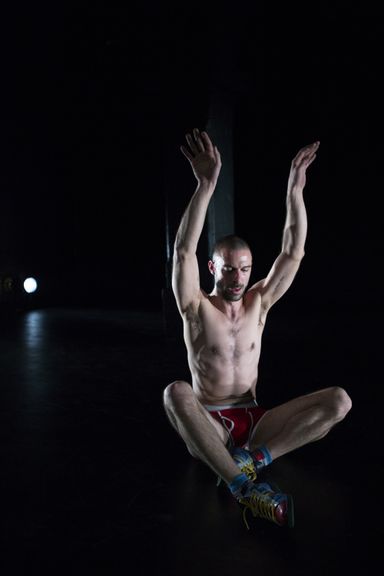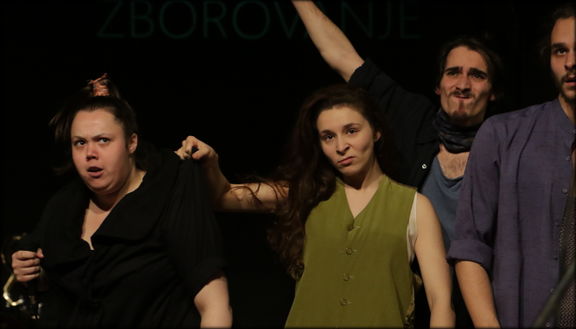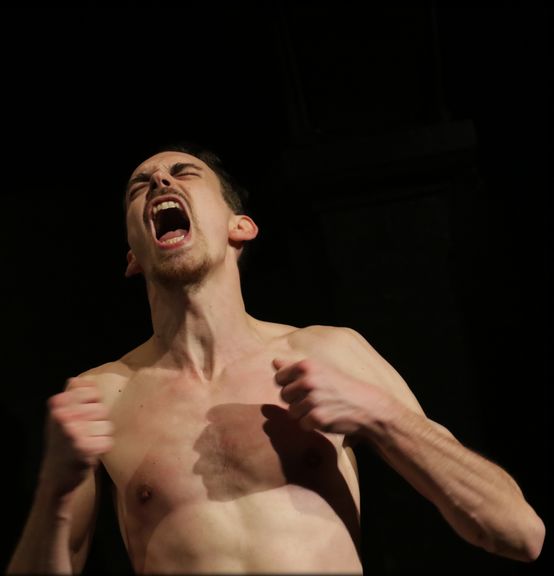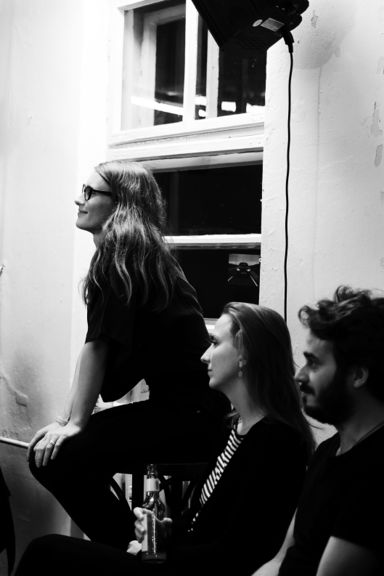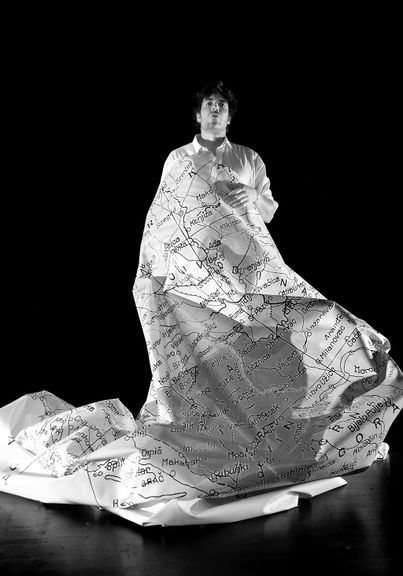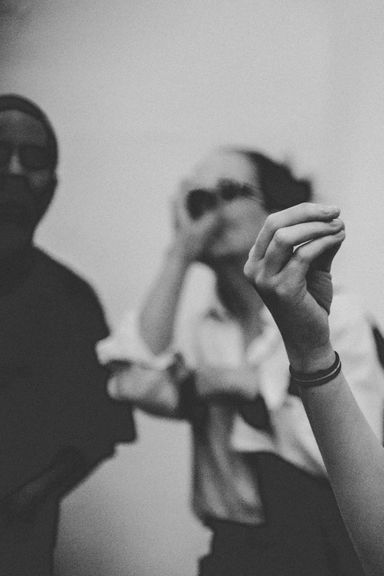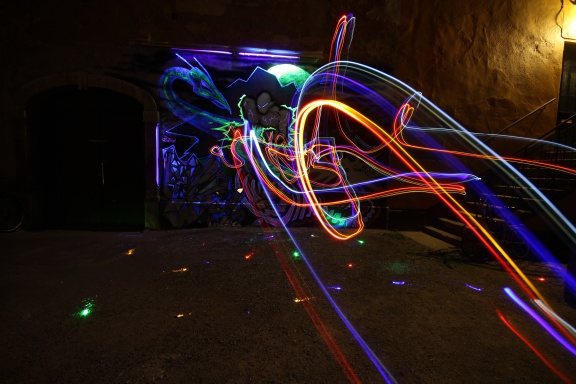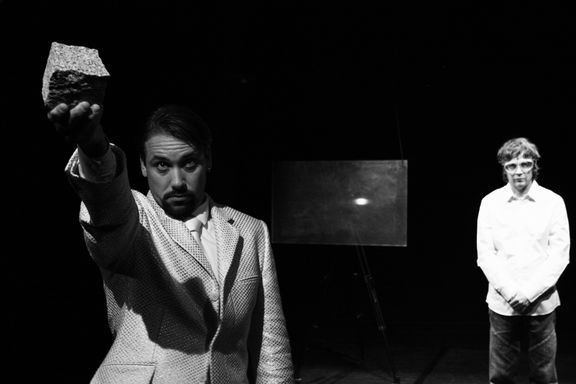Difference between revisions of "Glej Theatre"
Katja Kosi (talk | contribs) |
(PR) |
||
| (99 intermediate revisions by 9 users not shown) | |||
| Line 1: | Line 1: | ||
{{Article | {{Article | ||
| − | | status = | + | | status = PHOTO |
| maintainer = Katja Kosi | | maintainer = Katja Kosi | ||
}} | }} | ||
| Line 6: | Line 6: | ||
| name = Glej Theatre | | name = Glej Theatre | ||
| localname = Gledališče Glej | | localname = Gledališče Glej | ||
| + | | logo = Glej Theatre (logo).svg | ||
| street = Gregorčičeva 3 | | street = Gregorčičeva 3 | ||
| town = SI-1000 Ljubljana | | town = SI-1000 Ljubljana | ||
| − | | | + | | map = http://www.openstreetmap.org/?lon=14.50255&lat=46.04773&zoom=16&layer=mapnik |
| − | | | + | | telephone = 386 (0) 1 421 9240 |
| email = info@glej.si | | email = info@glej.si | ||
| − | | website = http://www.glej.si | + | | website = http://www.glej.si |
| contacts = {{Contact | | contacts = {{Contact | ||
| − | | name = | + | | name = Inga Remeta |
| role = President | | role = President | ||
| − | | email | + | |email = inga@glej.si |
| − | }}{{Contact | + | }} |
| − | | name = | + | {{Contact |
| − | | role = | + | | name = Barbara Poček |
| − | |email | + | | role = Producer, head of international projects |
| − | }}{{Contact | + | |email = barbara@glej.si |
| − | | name = | + | }} |
| − | | role = | + | {{Contact |
| − | |email | + | | name = Tina Malenšek |
| + | | role = Public relations | ||
| + | |email = tina@glej.si | ||
}} | }} | ||
| + | | accounts = | ||
| + | http://twitter.com/gledalisceglej | ||
| + | http://www.facebook.com/glej.gledalisce | ||
| + | http://www.flickr.com/photos/27494757@N02/sets/ | ||
| + | https://vimeo.com/glej | ||
}} | }} | ||
| − | {{Teaser| | + | |
| − | + | {{Teaser | |
| + | | image = Glej Theatre 2010 In the name of the people Photo Urska Boljkovac.jpg | ||
| + | | | ||
| + | Established in [[established::1970]], [[Glej Theatre]] is the oldest independent performing arts venue in Ljubljana. An important theatre production and education institution, Glej has been striving to explore theatrical practices in novel and daring ways ever since its early days. It remains a place open to unorthodox approaches and theatrical research, fore-fronting the upcoming generations of artists. | ||
}} | }} | ||
| − | + | {{TeaserSlo|Gledališče Glej je najstarejše alternativno gledališko prizorišče v Ljubljani.}} | |
| − | |||
| − | + | ==Background== | |
| − | + | Glej, which first emerged under the name "Experimental theatre Glej", was initially a response to the need for an alternative space for independent theatrical productions in Ljubljana. It was founded by a group of directors – who were inspired by the evolving experimental theatre approaches and who also introduced them into the Slovene space – among [[Lado Kralj]], [[Dušan Jovanović]] and [[Zvone Šedlbauer]]. The name of the theatre (which can be translated as "Look!", "See!" or "Behold!") is a nod to the notions developed by the American theatre theorist and director Richard Schechner. | |
| + | |||
| + | Works that did not (and do not) fit into the existing institutional theatre structures are Glej's staple. Already in its formative years it staged a number of highly acclaimed performances, most notably [[Bojan Štih|Bojan Štih's]] ''Monument G'' (Spomenik G, 1972), directed by [[Dušan Jovanović]], and [[Milan Jesih|Milan Jesih's]] ''The Bitter Fruits of Justice'' (Grenki sadeži pravice, 1974), directed by [[Zvone Šedlbauer]], which strongly influenced the theatre production in then-Yugoslavia. | ||
| + | |||
| + | During the 1980s, the theatre slowly moved away from radical experimental production. However, it retained its main orientation towards emerging and innovative authors able to offer new aesthetics and emphases. In the coming decades, it collaborated with a number of (still influential) directors and authors such as [[Vinko Möderndorfer]], [[Eduard Miler]], [[Iztok Kovač]], [[Matjaž Pograjc]], [[Matjaž Berger]], [[Igor Štromajer]], [[Jernej Lorenci]], [[Tomi Janežič]], [[Sebastjan Horvat]], [[Diego DeBrea]], [[Ivana Djilas]], [[Ivica Buljan]] and [[Emil Hrvatin]], to name but a few. | ||
==Programme== | ==Programme== | ||
| − | + | A rather small place in the old city centre, Glej has profiled itself as an alternative theatre of a diverse nature, setting up "devised theatre" alongside classical dramatic works, puppetry and even dance performances. It fosters numerous collaborations with Slovene as well as international organisations and often lends its premises for various independent artistic productions and festivals. Its challenging performances are frequently invited to international festivals, collecting several awards. | |
| + | |||
| − | Glej | + | {{Wide Image|Glej Theatre 2015 The Conference of the Birds. Photo Suncan Stone.jpg}} |
| − | + | ===Art direction=== | |
| − | + | As of the 2016/17 season, the theatre is led by a collective body, an "artistic council", which comprises personnel from different fields (production, criticism, public relations and organisation) and cooperates with the artists from conception to post-production to foster collaboration and safeguard high-quality art production. This gives Glej the flexibility to swiftly respond to any potential initiatives and needs in the theatre community. | |
| − | == | + | ===Production through artist development=== |
| − | |||
| − | + | The theatre annually produces or co-produces several performances of different genres and styles. To counter hyper-productivity and fragmentation of the contemporary performing arts scene, Glej aims to develop and offer sustained support to artists (both those with established careers and those who are new to making work) by providing them the conditions for continuous production and opportunities for future work (also outside of the production itself, through education and visiting projects). | |
| − | + | {{wide image|Glej Theatre 2014 Prihajamo We are coming Photo Mankica Kranjec.jpg}} | |
| − | Glej | + | As of 2013, the theatre runs ''Glej, Resident'', a unique residency programme offering upcoming artists the opportunity to research, develop and produce their own poetics over a period of one year as an antidote to the prevailing fast-production models. Glej also runs a platform for short experimental theatre pieces, regardless of whether they are completed works or works in progress, called ''Glej, Miniatures''. Glej strives to keep its programme structure open also through a year-round open call for theatrical and multidisciplinary projects. |
| − | + | Glej Theatre frequently collaborates with other institutions, be they fellow theatres or those coming from other artistic fields. One of its more striking collaborative enterprises is ''Transferzala'', a combined season ticket for six independent Ljubljana theatres: [[Mini Theatre]], [[Dance Theatre Ljubljana]], [[Španski borci Culture Centre]], [[Stara Elektrarna - Old Power Station]], [[Vodnik Homestead]] and Glej Theatre. It is also one of the producers of the [[Trigger Festival]]. | |
| − | == | + | Glej also publishes a journal called ''Glej, Paper'', reflecting on the state of contemporary theatre and on how this particular theatre house deals with it. |
| − | + | ||
| − | + | ===Empowering less privileged groups through education and cultural production=== | |
| + | Glej differs from other theatres in Slovenia by its unique way of identifying and addressing challenges in the performing arts community in Slovenia. (It has initiated a number of platforms that were later used by major institutions, one of them being the now defunct [[PreGlej na glas! Playwriting Festival]], meant for the development of quality Slovene playwriting.) Recognising the urgency for addressing the needs of less privileged social groups (teenagers, seniors), Glej runs the ''Generation 2 Generation'' programme, with partners from the Netherlands, Belgium, Bosnia and Herzegovina, and France, which aims to culturally empower these groups by developing their skills and offering them suitable contents. To this purpose, the theatre runs the project ''ŠtudenTeater'' (StudenTheatre), which encourages and facilitates cultural production amongst students who are not studying at the [[Academy of Theatre, Radio, Film and Television (AGRFT)]]. Here its partners are [[GT22]], the [[Slovene National Theatre Nova Gorica]], [[Moment Arts and Culture Association]] and the [[Public Fund for Cultural Activities of the Republic of Slovenia|Public Fund for Cultural Activities]]. | ||
| − | |||
| − | + | Regardless of particular endeavours, Glej, a member of the East European Performing Arts Platform (EEPAP), remains dedicated to young artists who often take their first steps in the theatre between the four pillars in Glej. | |
| − | |||
| − | * [ | + | ==See also== |
| + | *[[Moment Arts and Culture Association]] | ||
| + | *[[GT22]] | ||
| + | *[[Pocket Teater Studio]] | ||
| + | ==External links== | ||
| + | * [http://www.glej.si/en/ Glej Theatre website] | ||
| + | * [https://issuu.com/glejtheatre Glej fanzines, publications] | ||
| + | * [http://veza.sigledal.org/prispevki/glej-40-let About ''Glej - 40 years'' publication on Sigledal.org] | ||
| + | * [http://www.g2gproject.eu/ Generation to generation project website] | ||
| + | * [http://eepap.culture.pl/ East European Performing Arts Platform website] | ||
| + | * [http://www.transferzala.si Transferzala website] | ||
| + | {{Gallery}} | ||
| − | [[Category:Theatre | + | [[Category:Theatre]] |
[[Category:Theatre groups]] | [[Category:Theatre groups]] | ||
[[Category:Theatre venues]] | [[Category:Theatre venues]] | ||
| + | [[Category:Venues]] | ||
| + | [[Category:Groups]] | ||
| + | [[Category:Producers]] | ||
| + | [[Category:Theatre producers]] | ||
| + | [[Category:Theatre festival organisers]] | ||
| + | [[Category:Festival organisers]] | ||
| + | |||
| + | [[Category:Puppetry]] | ||
| + | [[Category:Puppetry event organisers]] | ||
| + | [[Category:Event organisers]] | ||
| + | |||
| + | [[Category:EU funding of Slovene organisations (Culture and MEDIA Programmes)]] | ||
| + | [[Category:EU Culture funding recipient]] | ||
| + | [[Category:EU Creative Europe, Culture funding recipient]] | ||
| + | |||
| + | [[Category:Updated 2017]] | ||
| + | [[Category:Theatre & Dance]] | ||
| + | [[Category:Puppetry_festival_and_event_organisers]] | ||
| + | [[Category:Theatre_festival_and_event_organisers]] | ||
Latest revision as of 12:48, 2 March 2023
-
to
18 Oct 2024
19 Oct 2024
Two performances of "You Are What You Eat - Si To, Kar Ješ", a youth author's theatre play under the mentorship of Anja Pirnat, Tatjana Peršuh and ISa Gardien, produced by Glej Theatre. The play is an omnibus of rebellions. From the most banal to the big and critical in the context of the time of the former Yugoslavia. It is full of both rebels and non-rebels. And even those who resist so much that the resistance no longer makes sense
-
14 Oct 2024
"Under Construction", a theatre play about society and the construction of our communities. Directed by Aljoša Lovrić Krapež and produced by Glej Theatre.
-
to
10 Sep 2024
12 Sep 2024
Two performances of "You Are What You Eat - Si To, Kar Ješ", a youth author's theatre play under the mentorship of Anja Pirnat, Tatjana Peršuh and ISa Gardien, produced by Glej Theatre. The play is an omnibus of rebellions. From the most banal to the big and critical in the context of the time of the former Yugoslavia. It is full of both rebels and non-rebels. And even those who resist so much that the resistance no longer makes sense
-
25 May 2024
A performance of "Hero 4.0 - Business as usual", by Katarina Stegnar, Boris Bezić, Lea Čehovin, and Gašper Bohinc. Produced by Glej Theatre and Moment Arts and Culture Association.
at the TESZT Festival
-
to
2 May 2024
3 May 2024
Two performances of "You Are What You Eat - Si to, kar ješ", a show about rebellions in the context of former Yugoslavia. Produced by Glej Theatre. Supported by European Union, Public Fund for Cultural Activities of the Republic of Slovenia, and Department of Culture of Municipality of Ljubljana.
at the RESISTANCE! Youth Festival of Modern European History
-
26 Nov 2023
"Heroj 4.0 - Business as Usual" - a performance by Moment Arts and Culture Association and Glej Theatre.
at the Desire Central Station
-
13 Jun 2023
-
25 May 2023
Serbia Belgrade Dom Kulture Studenski grad
Southwind directed by Mark Požlep and Maxime Berthou produced by Glej Theatre, SPRING Utrecht, Forceps Media
-
to
13 Apr 2023
15 Apr 2023
Spain Olot
-
to
13 Apr 2023
15 Apr 2023
Opium Clippers, a performance by Neja Tomšič, coproduced by Glej Theatre and MoTA Museum of Transitory Art. Related to the Embassy of the Republic of Slovenia Madrid
at the Festival Sismògraf
-
21 Feb 2020
The theatre performance Who Am I, directed by Tijana Zinajić and co-produced by Slovene National Theatre Nova Gorica, Glej Theatre, delleAli Teatro, Das Letzte Kleinod, Théâtre du Pélican and @The Albany, in the frame of the international project ID:Babylon,
-
to
18 Nov 2018
25 Nov 2018
India Mumbai Ryan International Schools
-
to
18 Oct 2018
21 Oct 2018
United Kingdom London UN8 msdm gallery
The visual essay and performance Tea for 5 - Opium Clippers by Neja Tomšič (MoTA Museum of Transitory Art), ceramics by Anja Slapničar, supported by Glej Theatre,
-
13 Oct 2018
The visual essay and performance Tea for 5 - Opium Clippers by Neja Tomšič (MoTA Museum of Transitory Art), ceramics by Anja Slapničar, and the poetry reading by Gašper Torkar, supported by Glej Theatre,
-
to
6 Oct 2018
7 Oct 2018
The visual essay and performance Tea for 5 - Opium Clippers by Neja Tomšič (MoTA Museum of Transitory Art), ceramics by Anja Slapničar, supported by Glej Theatre, in the frame of the exhibition Postcolonial Frames/Ex Oriente
-
14 Oct 2017
Potential Performance by Urška Brodar, Eva Nina Lampič, Melissa Krodman and Dani Modrej, produced by Glej Theatre and Ballhaus Ost (DE),
at the DISKURS 17 Festival
-
to
8 Sep 2017
14 Sep 2017
Montenegro Podgorica KIC Budo Tomović,Kuslev’s House,Montenegrin Nationa Theatre
How to temper the existential revolution?, co-produced by Divja misel Institute, The Second Freedom, produced by Bunker Institute, Pekinpah Association and Kink Kong, Life®Anti, produced by Glej Theatre, Slovene National Theatre Nova Gorica, KD TNK and School of Arts Nova Gorica, and Chairs, produced by Mini Theatre,
at the FIAT Festival of International Alternative Theatre
-
to
14 Jul 2017
19 Jul 2017
Madame Bovary, produced by the Slovene National Theatre Nova Gorica, A Conference of Birds, produced by Glej Theatre, and A Continental Divide by Barbara K. Anderlič,
at the International Theatre Institute World Congress
-
to
6 Jun 2017
7 Jun 2017
A Potential Performance by Urška Brodar, Eva Nina Lampič, Melissa Krodman and Dani Modrej, produced by Glej Theatre and Ballhaus Ost, Berlin, organised by the Theatre Academy, University of the Arts Helsinki,
-
to
22 Oct 2016
23 Oct 2016
Eva Nina Lampič and Urška Brodar's Potential Performance, a collaborative residency project of the Glej Theatre, promoted by the Slovenian Cultural Centre in Berlin (Embassy of the Republic of Slovenia Berlin),
-
20 May 2016
Something Is Missing, produced by Glej Theatre, in the framework of the project Generation to Generation
-
8 May 2016
Forest of Songs, conceived, directed and music by Peter Kus with art by Kaja Avberšek, co-produced by Glej Theatre and Federacija Institute, Animal Farm, produced by the Ljubljana Puppet Theatre, and Turlututu, co-produced by the Ljubljana Puppet Theatre
at the International Puppet Theatre Festival SommerTraumHafen
-
7 May 2016
The Conference of the Birds, produced by Glej Theatre and the Academy of Theatre, Radio, Film and Television (AGRFT), at MIT Fest Montenegro International Theatre Festival
-
15 Apr 2016
This Is It, Like It or Not!, produced by Glej Theatre, supported by the Embassy of the Republic of Slovenia The Hague,
-
to
3 Nov 2015
7 Nov 2015
Forest of Songs, conceived, directed and music by Peter Kus, with art by Kaja Avberšek, co-produced by Glej Theatre and Federacija Institute, Animal Farm, produced by the Ljubljana Puppet Theatre, and Turlututu, co-produced by the Ljubljana Puppet Theatre, at the 20th Festival of Puppet Theatre Rijeka
-
23 Oct 2015
Forest of Songs, conceived, directed and music by Peter Kus, with art by Kaja Avberšek, co-produced by Glej Theatre and Federacija Institute,
-
1 Sep 2015
Forest of Songs, conceived, directed and music by Peter Kus, with art by Kaja Avberšek, co-produced by Glej Theatre and Federacija Institute, at the Luaga & Losna Festival
-
7 Jul 2015
Forest of Songs, conceived, directed and music by Peter Kus, with art by Kaja Avberšek, co-produced by Glej Theatre and Federacija Institute
at the Kotor Festival of Theatre for Children
-
21 Sep 2014
The Passsion of John, produced by Glej Theatre, at the 1st International Festival of Young Audience Korzo
-
to
8 Sep 2014
14 Sep 2014
Liferanti, produced by the Slovene National Theatre Nova Gorica, Cultural Association Teater na konfini, School of Arts, University of Nova Gorica, and Glej Theatre, The Second Freedom, produced by the Pekinpah Association and Bunker Institute, at F I A T Festival of International Alternative Theatre, supported by the Embassy of the Republic of Slovenia Podgorica,
-
28 May 2014
-
to
15 Nov 2013
17 Nov 2013
-
23 Oct 2013
Always the Same Story, co-produced by the Maribor Puppet Theatre, and Edge, co-produced by the MKC Maribor Youth Culture Centre, Glej Theatre, and Maribor Puppet Theatre, at the 4th International Puppet Theatre Show Lutkokaz
-
to
16 Oct 2013
20 Oct 2013
Videk’s New Shirt by Fru Fru Puppet Theatre, Forest of Song by Glej Theatre, Thumbelina by Mini Theatre, and The Enormous Turnip by Bobek Puppet Theatre at the International Puppet Festival Cikl Cakl
-
to
14 Oct 2013
19 Oct 2013
Plays Whore by Vedrana Rudan and directed by Marko Bulc (Glej Theatre) and Happily Divorced by Iztok Valič and directed by Jaša Jamnik (Valič Theatre), and a screening of the film Good to go directed by Matevž Luzar (PAKT Media) with a special guest Milena Zupančič, and other events at the Days of Slovene culture Istria
-
to
12 Oct 2013
14 Oct 2013
Jure Novak’s Reasons to Be Happy, produced by Glej Theatre, at the Café Budapest Contemporary Arts Festival, supported by the Embassy of the Republic of Slovenia Budapest,
-
6 Jun 2013
-
to
5 Jun 2013
17 Jun 2013
Christmas at the Ivanovs, produced by the Slovene National Theatre Drama Ljubljana, Women's Comedy, by Ljubljana City Theatre (MGL), 25.671, by the Prešeren Theatre Kranj, and Whore, by Glej Theatre
at the Fadil Hadžić Satire Days
-
to
19 May 2013
25 May 2013
Forest of Song produced by Glej Theatre and Little Sleepy Star produced by Mini Theatre
at the International Festival of Children's Theatres
-
to
3 May 2013
5 May 2013
Doctor Faustus produced by Ljubljana Puppet Theatre and Forest of Song co-produced by Glej Theatre
at the SLUK Festival Osijek
-
12 Mar 2013
-
31 Jan 2013
-
to
27 Jan 2013
29 Jan 2013
-
22 Dec 2012
-
11 Dec 2012
-
to
6 Dec 2012
9 Dec 2012
-
to
24 Nov 2012
25 Nov 2012
Reasons to be Happy produced by Glej Theatre and Zavod Poza; Damned be the Traitor of his Homeland! and Re-/de-/construction: Class Enemy produced by Mladinsko Theatre
at the Desire Festival
-
15 Oct 2012
-
to
11 Oct 2012
15 Oct 2012
-
to
6 Oct 2012
11 Oct 2012
Lalanit and Doctor Faustus produced by Ljubljana Puppet Theatre, Mišmaš Bakery and Snow-White produced by Mini Theatre, When Shlemiel Went to Warsaw by Maribor Puppet Theatre, and How Jaromir Sought Happiness produced by Glej Theatre
at the Banja Luka International Festival of Children's Theatre
-
1 Oct 2012
Jure Novak’s Reasons to Be Happy, produced by Glej Theatre
at the Impact, International Festival of Performing Arts
-
to
23 Aug 2012
27 Aug 2012
When I Was Dead by Ernst Lubitsch, produced by the Slovene National Theatre Drama Ljubljana, Whore by Vedrana Rudan, produced by Glej Theatre at the Festival of Mediterranean theatre - Purgatorije
-
to
29 Jun 2012
1 Jul 2012
Scream, directed by Boris Kadin and produced by Glej Theatre, Misterio Bufo, directed by Marko Bratuš and produced by Glej Theatre, and How Jaromir Sought Happiness, produced by Glej Theatre,
-
15 Apr 2012
-
5 Mar 2012
-
29 Sep 2011
Stephen King's Šajning directed by Borut Bučinel, produced by Glej Theatre
at the
at the PLArtFORMA festival Klaipeda
-
to
16 Sep 2010
26 Sep 2010
Damned Be the Traitor of His Homeland!, directed by Oliver Frljić and produced by Mladinsko Theatre; The Bridge Over Blood by Damir Avdić, directed by Marko Bulc and produced by the Glej Theatre; and Exit the King, co-produced by Slovene National Theatre Drama Ljubljana and Ex Ponto International Festival, supported by the Embassy of the Republic of Slovenia Skopje,
at the International Theatre Festival MOT
Background
Glej, which first emerged under the name "Experimental theatre Glej", was initially a response to the need for an alternative space for independent theatrical productions in Ljubljana. It was founded by a group of directors – who were inspired by the evolving experimental theatre approaches and who also introduced them into the Slovene space – among Lado Kralj, Dušan Jovanović and Zvone Šedlbauer. The name of the theatre (which can be translated as "Look!", "See!" or "Behold!") is a nod to the notions developed by the American theatre theorist and director Richard Schechner.
Works that did not (and do not) fit into the existing institutional theatre structures are Glej's staple. Already in its formative years it staged a number of highly acclaimed performances, most notably Bojan Štih's Monument G (Spomenik G, 1972), directed by Dušan Jovanović, and Milan Jesih's The Bitter Fruits of Justice (Grenki sadeži pravice, 1974), directed by Zvone Šedlbauer, which strongly influenced the theatre production in then-Yugoslavia.
During the 1980s, the theatre slowly moved away from radical experimental production. However, it retained its main orientation towards emerging and innovative authors able to offer new aesthetics and emphases. In the coming decades, it collaborated with a number of (still influential) directors and authors such as Vinko Möderndorfer, Eduard Miler, Iztok Kovač, Matjaž Pograjc, Matjaž Berger, Igor Štromajer, Jernej Lorenci, Tomi Janežič, Sebastjan Horvat, Diego DeBrea, Ivana Djilas, Ivica Buljan and Emil Hrvatin, to name but a few.
Programme
A rather small place in the old city centre, Glej has profiled itself as an alternative theatre of a diverse nature, setting up "devised theatre" alongside classical dramatic works, puppetry and even dance performances. It fosters numerous collaborations with Slovene as well as international organisations and often lends its premises for various independent artistic productions and festivals. Its challenging performances are frequently invited to international festivals, collecting several awards.
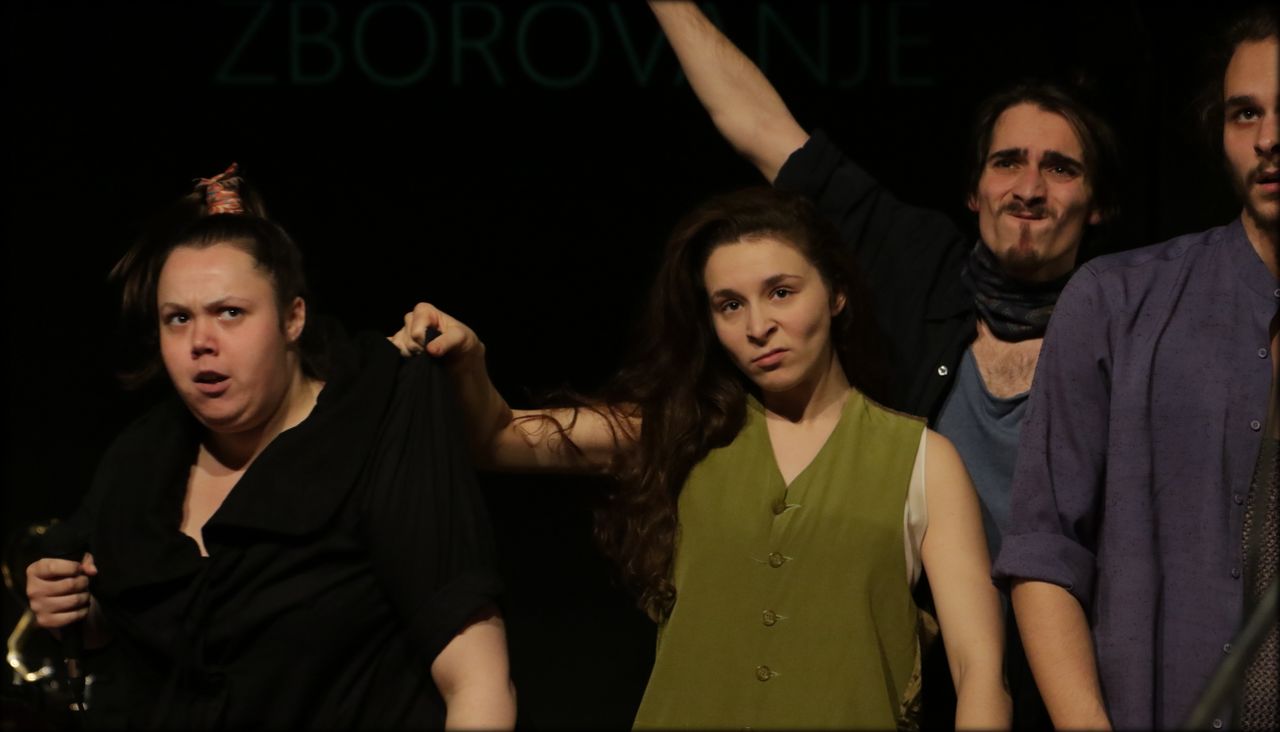 The conference of the birds, performance directed by Nina Rajić Kranjac; at Glej Theatre, 2015.
The conference of the birds, performance directed by Nina Rajić Kranjac; at Glej Theatre, 2015.
Art direction
As of the 2016/17 season, the theatre is led by a collective body, an "artistic council", which comprises personnel from different fields (production, criticism, public relations and organisation) and cooperates with the artists from conception to post-production to foster collaboration and safeguard high-quality art production. This gives Glej the flexibility to swiftly respond to any potential initiatives and needs in the theatre community.
Production through artist development
The theatre annually produces or co-produces several performances of different genres and styles. To counter hyper-productivity and fragmentation of the contemporary performing arts scene, Glej aims to develop and offer sustained support to artists (both those with established careers and those who are new to making work) by providing them the conditions for continuous production and opportunities for future work (also outside of the production itself, through education and visiting projects).
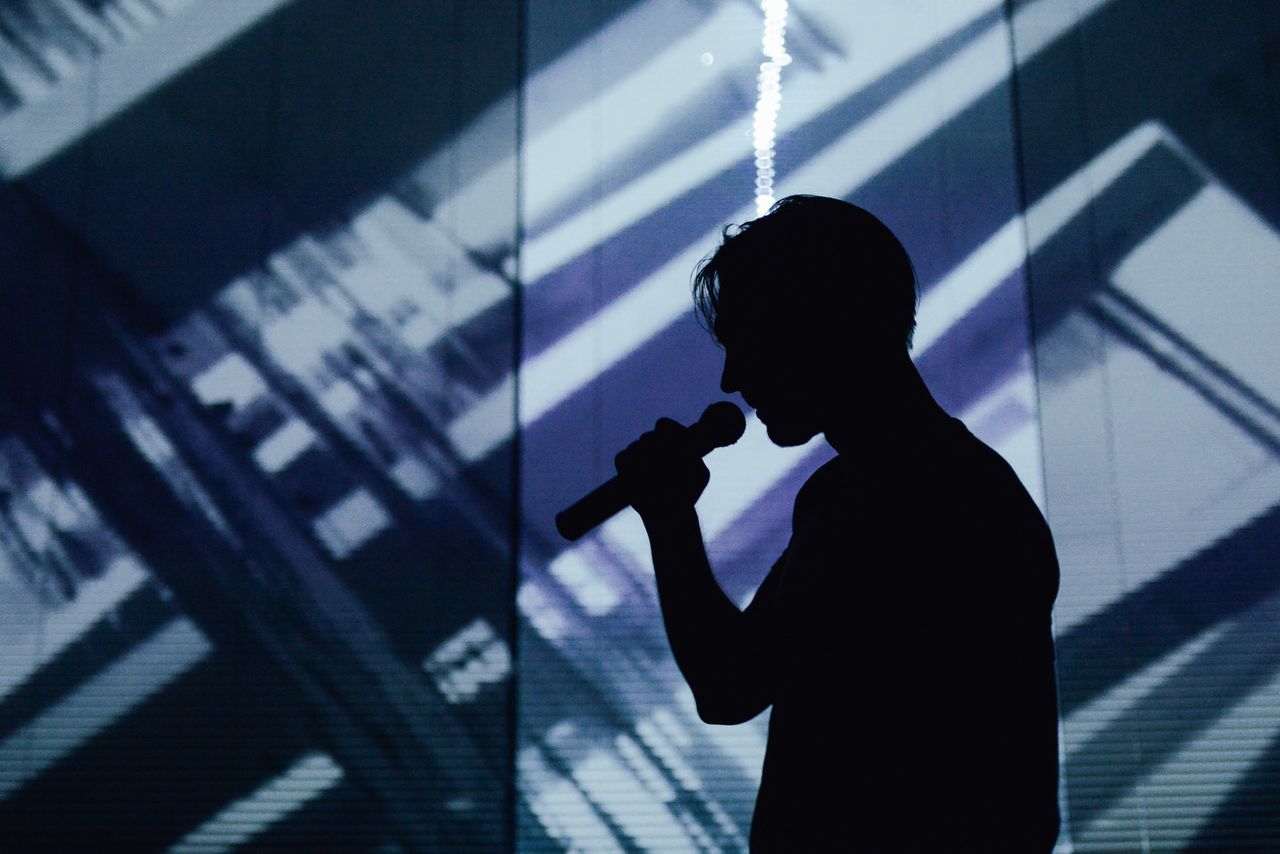 We are coming, the third part of the theatre trilogy Silent City staged within the Glej Theatre residency programme under the direction of Jaša Koceli, 2014.
We are coming, the third part of the theatre trilogy Silent City staged within the Glej Theatre residency programme under the direction of Jaša Koceli, 2014.
As of 2013, the theatre runs Glej, Resident, a unique residency programme offering upcoming artists the opportunity to research, develop and produce their own poetics over a period of one year as an antidote to the prevailing fast-production models. Glej also runs a platform for short experimental theatre pieces, regardless of whether they are completed works or works in progress, called Glej, Miniatures. Glej strives to keep its programme structure open also through a year-round open call for theatrical and multidisciplinary projects.
Glej Theatre frequently collaborates with other institutions, be they fellow theatres or those coming from other artistic fields. One of its more striking collaborative enterprises is Transferzala, a combined season ticket for six independent Ljubljana theatres: Mini Theatre, Dance Theatre Ljubljana, Španski borci Culture Centre, Stara Elektrarna - Old Power Station, Vodnik Homestead and Glej Theatre. It is also one of the producers of the Trigger Festival.
Glej also publishes a journal called Glej, Paper, reflecting on the state of contemporary theatre and on how this particular theatre house deals with it.
Empowering less privileged groups through education and cultural production
Glej differs from other theatres in Slovenia by its unique way of identifying and addressing challenges in the performing arts community in Slovenia. (It has initiated a number of platforms that were later used by major institutions, one of them being the now defunct PreGlej na glas! Playwriting Festival, meant for the development of quality Slovene playwriting.) Recognising the urgency for addressing the needs of less privileged social groups (teenagers, seniors), Glej runs the Generation 2 Generation programme, with partners from the Netherlands, Belgium, Bosnia and Herzegovina, and France, which aims to culturally empower these groups by developing their skills and offering them suitable contents. To this purpose, the theatre runs the project ŠtudenTeater (StudenTheatre), which encourages and facilitates cultural production amongst students who are not studying at the Academy of Theatre, Radio, Film and Television (AGRFT). Here its partners are GT22, the Slovene National Theatre Nova Gorica, Moment Arts and Culture Association and the Public Fund for Cultural Activities.
Regardless of particular endeavours, Glej, a member of the East European Performing Arts Platform (EEPAP), remains dedicated to young artists who often take their first steps in the theatre between the four pillars in Glej.
See also
External links
- Glej Theatre website
- Glej fanzines, publications
- About Glej - 40 years publication on Sigledal.org
- Generation to generation project website
- East European Performing Arts Platform website
- Transferzala website
Gallery
- Theatre
- Theatre groups
- Theatre venues
- Venues
- Groups
- Producers
- Theatre producers
- Theatre festival organisers
- Festival organisers
- Puppetry
- Puppetry event organisers
- Event organisers
- EU funding of Slovene organisations (Culture and MEDIA Programmes)
- EU Culture funding recipient
- EU Creative Europe, Culture funding recipient
- Theatre & Dance
- Puppetry festival and event organisers
- Theatre festival and event organisers




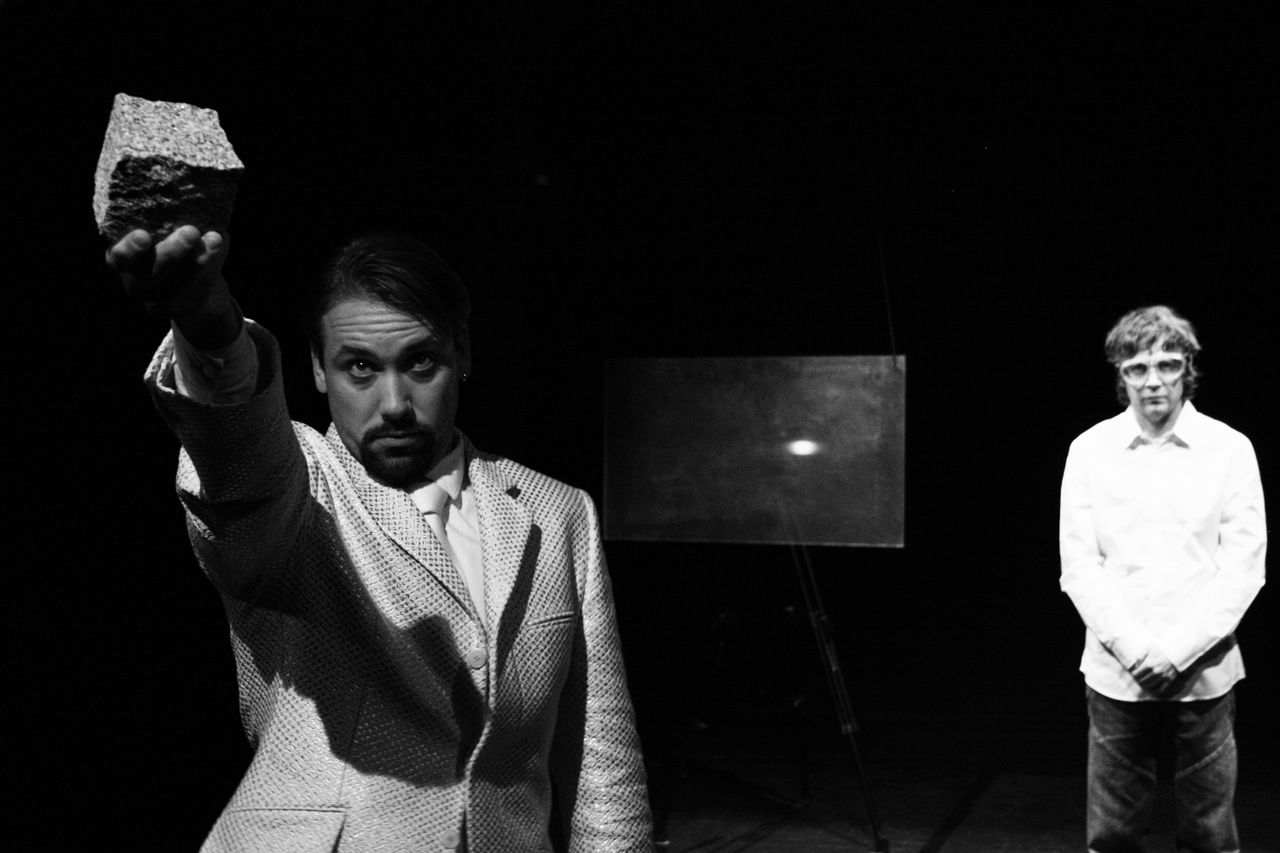
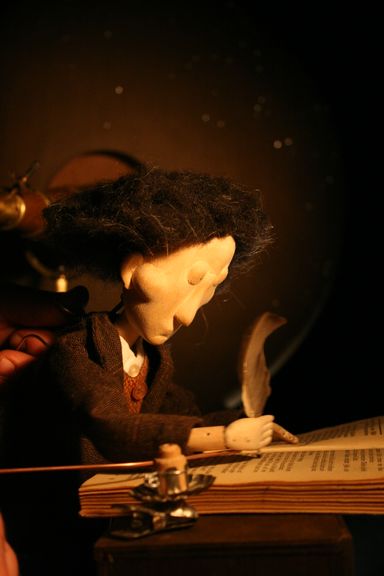
![Press image for Šajning [Shining], directed by Borut Bučinel, premiere in Glej Theatre, 2010](/images/thumb/7/7f/Glej_Theatre_2009_Shining_Photo_Urska_Boljkovac.jpg/576px-Glej_Theatre_2009_Shining_Photo_Urska_Boljkovac.jpg)
